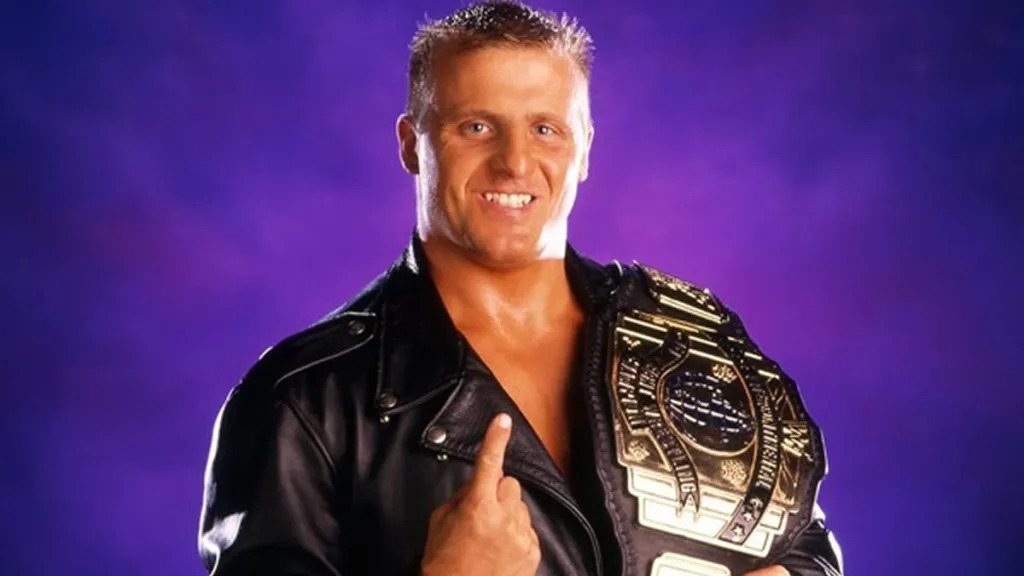
On a recent edition of his “My World” podcast, WWE Hall of Famer Jeff Jarrett discussed why Dan Severn didn’t work out in WWE, Owen Hart’s issues with The Attitude Era, and more.
You can check out some highlights from the podcast below:
On his relationship with Stephanie McMahon in 1999: “I mean, it was — for lack of a better word, the boss’s daughter. I could relate to a boss’s kid being a part of the promotion. I always related to Shane and Stephanie that way. Yeah, one of those footnotes that you’d like to sometimes say, the Forrest Gump of wrestling. Out of all the talent of all the years, who is Stephanie McMahon’s first win on TV? You’re looking at him. So I mean, I always had a very good relationship with Stephanie. And you know, at this stage, her promo skills weren’t what they developed, but she’s always always had natural charisma. And I’m not just saying on camera, backstage as well. She’s very likable, but very well-spoken and always has been since the day I met her.”
On why Dan Severn didn’t work out in WWE: “Yeah. And I respect Dan and his accomplishments tremendously. But he didn’t — his wrestling style did not fit in the Attitude Era. Because as we just talked about; I mean, two, three minute TV matches were the norm. And that didn’t fit to any of Dan’s strengths. I think that’s the single biggest issue with Dan in the Attitude Era. And also just his demeanor and his style. I mean, his promo, his mindset, it just didn’t fit.”
On the notio0n that the Blue Blazer return was a punishment to Owen: “Innuendo. But the, kind of the mindset behind it all, I believe — you know, obviously it didn’t get fully developed — that Owen in real life had issues with certain aspects of the Attitude Era. And I’ll call it with the Hart name. With Stu Hart, and all the brothers, and Bret and of course Owen, and you know, Owen’s Wrestlemania 10 match. And just that whole persona that went with it, as opposed to him having issues with certain things about the Attitude Era. They — in their mind, they said, ‘Okay, his alter ego, the Blue Blazer’ — which Owen had been the Blue Blazer in the early times — that fit. ‘Let’s have him be the superhero who believes in good, who has issues with the Atitude Era.’ And that was the mindset of the whole of the character. And you could play with it back and forth, and there’s been plenty of storylines with guys through the years. Dusty and the Midnight Rider, and we could both give multiple examples. But that was the impetus of the Blue Blazer character at this stage in the Attitude Era.”
In a recent episode of his “My World” podcast, WWE Hall of Famer Jeff Jarrett delved into various topics, including why Dan Severn didn’t work out in WWE and Owen Hart’s issues with The Attitude Era.
Jarrett first discussed his relationship with Stephanie McMahon in 1999. As the boss’s daughter, Jarrett acknowledged that he could relate to her being a part of the promotion. He mentioned that he had a good relationship with Stephanie and recognized her natural charisma, both on and off-camera.
Moving on to Dan Severn, Jarrett expressed his respect for Severn and his accomplishments but explained why he didn’t fit in during the Attitude Era. The norm during that time was two to three-minute TV matches, which didn’t align with Severn’s wrestling style and strengths. Additionally, Severn’s demeanor and promo style didn’t match the edgier nature of the era, contributing to his lack of success in WWE.
Jarrett then addressed the notion that Owen Hart’s return as the Blue Blazer was a punishment. He clarified that it was more of an innuendo and believed that Owen had genuine issues with certain aspects of The Attitude Era, particularly related to the Hart family name. In an attempt to create a character that aligned with Owen’s concerns, WWE decided to bring back the Blue Blazer persona, portraying him as a superhero who believed in good and had issues with the Attitude Era. This storyline allowed for creative exploration and was not uncommon in wrestling history, with examples like Dusty Rhodes as the Midnight Rider.
Overall, Jarrett’s insights shed light on the challenges faced by wrestlers during different eras and how their styles and personal preferences can impact their success in the industry. It also highlights the creative decisions made by WWE to address talent concerns and create engaging storylines.
